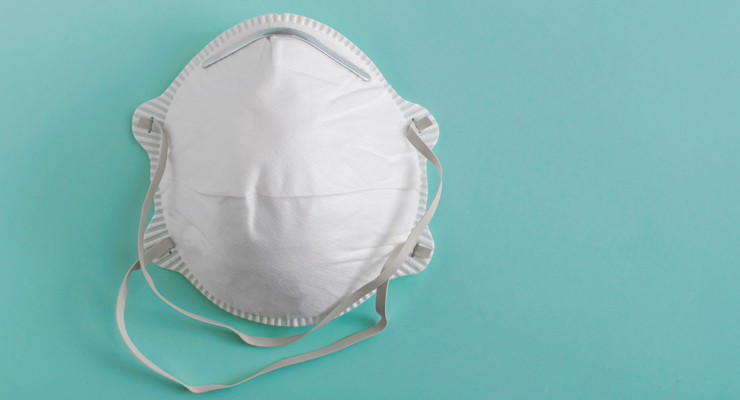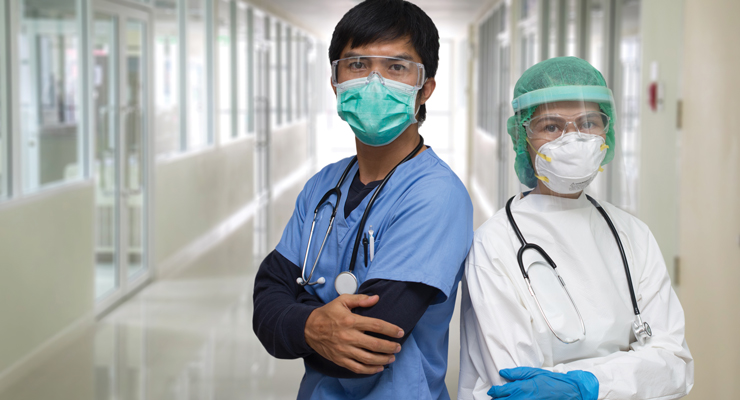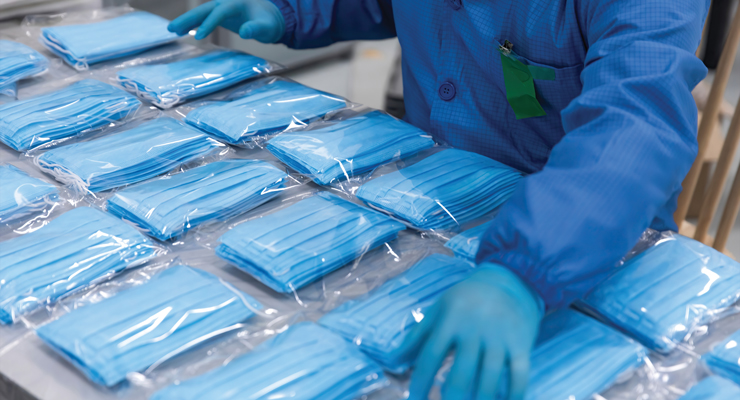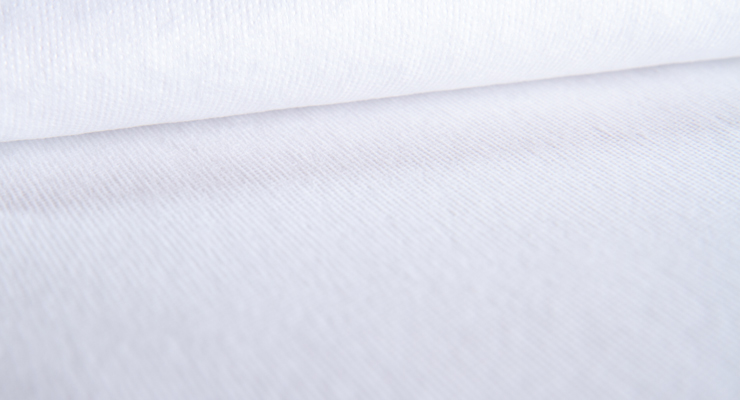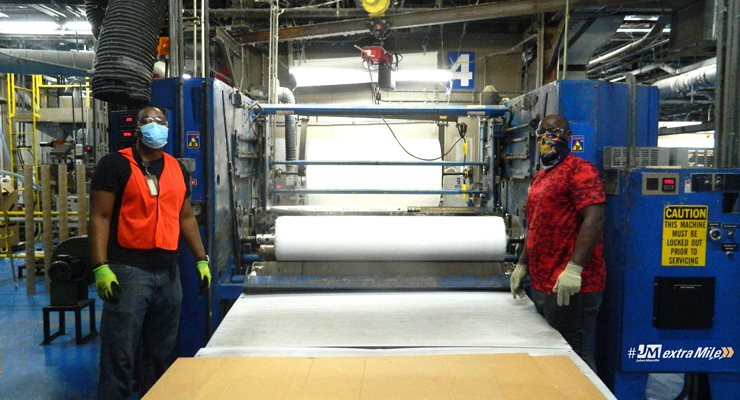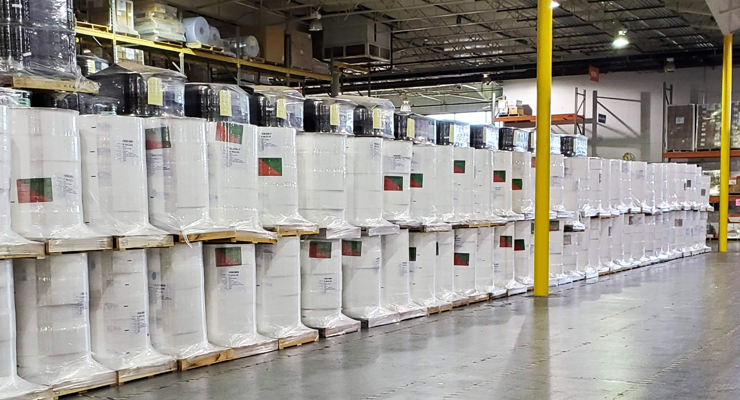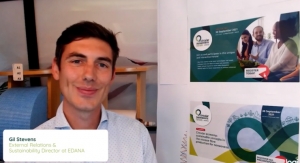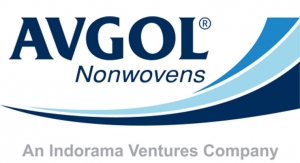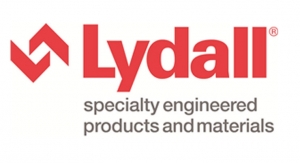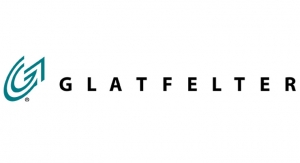Tara Olivo, Associate Editor08.05.20
Global demand for nonwovens used in healthcare applications and personal protective equipment (PPE) has soared since the world first learned of a novel coronavirus outbreak in Wuhan, China, late last year. As cases climbed in China, nonwovens manufacturers and converters already began shifting capacity in Asia to meet demand for nonwoven-based products like face masks and personal protective apparel (PPE). When the virus that causes Covid-19 began to spread aggressively in other areas of the world, governments and industry stakeholders focused on securing new local production of PPE and the materials that make them.
According to Jennifer Mapes-Christ, manager, Consumer & Commercial Products Group at Freedonia Group, a leading international industrial research company, China produces most PPE for the global market. “However, a number of countries are developing their own local manufacturing capacity,” she says. “Some of these are even being supported by government incentives, including public-private partnerships, to ensure sufficient local capacity and stocks for essential supplies.”
Freedonia says Covid-19 pandemic is transforming the global market for a number of nonwovens-based PPE. As demand for these products continues to soar, nonwovens producers are investing in new machinery and expanding capacity in order to avoid the supply shortfalls seen at the pandemic’s onset and allow the market to renormalize.
Global demand for meltblown nonwovens, which, among other things, is used as a critical filtration layer in N95 masks, is expected to increase over 12% in 2020 in value terms, according to data furnished by Freedonia. Surging demand for meltblown used in crucial medical supplies like masks caused supply shortages and price hikes that were offset by losses in the large automotive filter market, as the need to combat the spread of Covid-19 boosted use of protective gear while leading to shutdowns of many automotive manufacturing facilities.
Freedonia reports that global demand for spunbond nonwovens is also experiencing major shifts in 2020, also due to the pandemic. As with meltblown, the market for spunbond webs is being greatly impacted by a surge in face mask demand and changes in the supply of and demand for other key end-use products.
In value terms, global demand for spunbond nonwovens in 2020 is expected to remain similar to 2019 levels despite some declines in volume demand, Freedonia reports. Sales of spunbond nonwovens used in manufacturing of motor vehicles or in construction applications have dropped due to economic uncertainty and stay-at-home orders. However, Freedonia reports that demand for spunbond nonwovens used for medical and hygiene products surged in the first half of 2020. Spikes in demand resulted from increased need for medical masks and other crucial medical supplies such as PPE. Spunbond is also benefiting from elevated wipes demand, as the pandemic has driven demand for surface disinfecting wipes and other healthcare wipes.
Freedonia expects that demand will remain elevated for a time until long-neglected and currently depleted emergency stocks are adequately filled. “The concept of obtaining these products on a just-in-time basis has been shown to be a failure in a time of high global need,” Mapes-Christ says.
Several months into the pandemic, healthcare workers on the front lines, especially in the U.S., are still facing shortages of PPE including respirator masks and isolation gowns—a problem many expected to be resolved at this point. In the next few pages, Nonwovens Industry takes a look at how manufacturers are working to alleviate these shortages amid the ongoing pandemic.
Berry Invests Globally
Berry Global, the world’s largest nonwovens producer, started making moves early on in the pandemic in order to increase its supply of materials used for PPE around the world.
“Berry’s agility has enabled swift action in the fight against Covid-19,” says Curt Begle, president of Health, Hygiene, & Specialties at Berry Global, Inc. “Responding rapidly on a global scale, Berry has redeployed existing assets to produce as much healthcare volume as possible to support the unprecedented increase in demand.”
This was further augmented by the planned startup of a new R5 Spunbond asset in Nanhai, China; the new Spinlace asset in Mooresville, NC; and commercializing two meltblown pilot line assets in the U.S. Berry invested further, to support the global face mask demand, by approving three new meltblown lines in Europe and one new line for LATAM, along with nine face mask converting lines deployed around the world.
The new Spinlace production line in Mooresville, NC, began running at full production rates in March, providing an incremental 17,000 metric tons of annual capacity. The Spinlace asset is focused on various wipes applications serving the healthcare, hygiene, household cleaning, foodservice and industrial markets.
In April, the company announced the conversion of its pilot line in Waynesboro, VA, into a commercial operation. The line makes Berry’s proprietary Meltex meltblown material for both surgical masks and N95 and N99 respirators. This added capacity will allow Berry to make materials for 200 million masks annually. Berry has also converted a pilot line in Old Hickory, TN.
Also in the U.S. Berry is expanding its spunmelt nonwoven capacity in Statesville, NC, where it will install $8 million of new equipment and enhance existing production lines, allowing it to further optimize its production of spunmelt applications used in the fabrication of medical gowns, face masks, and other personal protection equipment, as well as those used in hygiene applications. The additional equipment and expanded capacity are expected to be operational in December 2021.
Meanwhile in Europe Berry advanced its investment in an additional specialty meltblown asset in France to produce high-efficiency filtration media serving the EMEIA markets. The plant will bring an additional annual capacity of 550 tonnes of N95 material and 365 tonnes of N99 material to the market, which will serve the EMEA economic area.
Berry is also expanding its global Meltex meltblown capacity with a new asset in Berlin, Germany, that will support the growing global face mask demand. The line is expected to be operational in October 2020.
At the end of June, Berry announced the investment of a new meltblown asset at one of its U.K. facilities to increase capacity of material necessary in the production of European-standard Type IIR and N99-equivalent FFP3 masks. The investment was a result of a collaboration with The Medicom Group, a manufacturer of medical and respiratory masks, to design a manufacturing solution and guarantee the supply of nonwoven fabric intended for use in producing hundreds of millions of face masks annually as part of Medicom’s agreement with the British Government. The masks will be manufactured and sold under Medicom’s European Kolmi brand.
In addition to these European investments, Berry launched an extension of its Synergex range of products, Synergex ONE, a new media for face mask applications. Developed to initially meet the new face mask categories for general population, the aim is to quickly bring the media up to EN 14683:2019 standards for surgical masks. Synergex ONE provides a multilayer nonwoven composite product in a single sheet, as an alternative to traditional face mask layer structures. This new material is manufactured in Europe and serve the European market.
Meanwhile, Berry’s first meltblown asset in South America is expected to start up in the March 2021 quarter. The investment will bring more than 400 metric tons of Meltex meltblown nonwoven material to the region, which will enable production of more than 500 million surgical-grade masks per year. The new asset will be placed at an existing Berry production facility in South America.
Begle says direct Covid-19 related demand for PPE materials is expected to last well into 2021, even after the virus is under control as global, regional, and local stockpiles are either replenished or newly established. “In addition, history has shown that past pandemics (SARS, Ebola, Avian Flu, H1N1) have all changed clinical behavior, which has driven greater adoption and higher consumption of nonwoven-based healthcare products.”
Ahlstrom-Munksjö Ramps Up Production
Since the beginning of the Covid-19 pandemic, Ahlstrom-Munksjö’s manufacturing plants serving the medical business have been experiencing unprecedented levels of demand across the entire medical product portfolio, according to Lionel Bonte, VP Medical Business Ahlstrom-Munksjö.
“We have expanded production, increased capacity and adapted current technology to meet the demand globally to provide the protection needed to help stop the spread of Covid-19,” he says. “We constantly monitor the risks related to the supply chain to ensure our manufacturing needs can be met. We also have frequent calls with the global medical team to update and align on manufacturing lead and production times and requirements, raw material pipeline and supply chain flow.”
The company’s medical and filtration businesses have tripled its legacy face mask capacity by redistributing allocations, looking outside its traditional manufacturing footprint, repurposing existing products originally not meant for face mask applications, outsourcing non-essential businesses, qualifying external like capabilities that were available and restarting dormant assets, he adds.
These recent efforts include the production of face mask materials on a fine fiber line normally used for industrial filtration materials at its site in Turin, Italy. The technology is unique, generating good protection and breathability for medical use, and approved as a surgical mask. The advantage of this technology compared to the commonly available electrostatically charged material is its durability. Protection efficiency of electrostatically charged materials is lost overtime when humidity gets in contact with the filter media, whereas protection efficiency of a mechanical filter media remains intact over time, according to the company.
After receiving its first orders in March, the Turin plant expanded capacity through line improvements and production optimization and it plans to produce face mask material equivalent to over 60 million surgical face masks per month, adding up to a total of 500 million face masks through the remainder of 2020.
Ahlstrom-Munksjö also extended the production of face mask materials to a line normally used for industrial filtration materials at its Tampere plant in Finland. Currently the material is well suited for lighter fabric face masks in civil activities. Droplets test shows that the media has efficiency above 90% at three microns and above 85% at one micron, which is close to a surgical face mask requirement.
Alongside these moves the nonwovens producer launched the Extia Protect product range for face mask applications. The Extia Protect portfolio includes filtration layers, cover stocks, lace media and reinforcement layers. Each component of the range has been designed to meet specific requirements of different types of masks including respiratory masks, surgical masks and civil masks. The face mask offering is produced on a global industrial platform consisting of plants in Europe, North and South America and Asia, giving the company the required capacity to meet the regional demand.
With focus on the PPE market for such a long period of time and across all regions, the company acknowledges that the pandemic has exposed a lot of weaknesses in the value chain, and it anticipates that the market landscape will change dramatically for the years to come.
“The manufacturing competitive landscape will become a lot more aggressive than it has ever been,” Bonte says. “Increased additional capacity across PPE products manufacturing will put a lot of stress on productivity, efficiencies and costs. The traditional manufacturer landscape might look differently in two years from now only making room for the most agile.”
While demand for PPE materials remains high now, the company does not foresee a sudden plunge but rather a slow correction in demand as time goes on. “Due to our flexible asset and capacity allocation approach during the pandemic, we will be able to return to normal asset utilization past this crisis maximizing our existing capacity in the same way we did prior to the Covid-19 pandemic,” says Bonte.
Suominen Launches Filtration Layer for Masks
Finnish nonwovens producer Suominen recently developed Fibrella Shield, a new nonwoven material for the manufacturing of face mask applications. While the company is tight-lipped on the details of the novel and proprietary technology, category manager Johanna Sirén says this is the first time the company is supplying nonwoven that provides the actual filtration for the structure of masks. For decades, Suominen supplied components of face masks including inner and outer layers and laces used to tie the mask.
“Our Fibrella Shield nonwoven has excellent filtration efficiency and pressure drop values meaning that the material provides protection while being comfortable and easy to breathe through. Measured with an applied method by VTT (VTT Technical Research Centre of Finland) results indicate that Fibrella Shield nonwoven’s filtration efficiency is higher than 99% reaching type II requirements but of course the material can also be used for lighter model Type I masks or uncertified masks,” Sirén says.
The new nonwoven has passed European Standard EN 14683:2019 Type II requirements in terms of filtration efficiency and pressure drop. The standard EN14683:2019 for medical masks is for end products and the converter has to repeat the tests to confirm the standard compliancy for the end product. The end product needs to comply also with the regional regulations, if any.
Developed in cooperation with VTT, this new material is the latest addition to the Fibrella family. Fibrella Shield is already in production at Suominen’s Nakkila plant, which is capable of producing material for approximately 15 million masks per month.
Suominen was able to react so quickly to the high-demand for filtration materials in-part because its Finland plant is part of the National Emergency Chain (NEC). “Once the epidemics and PPE shortage hit Finland, we were approached by NEC asking what we could have for masks,” Sirén explains. “We then decided to really work for it to develop the product and solution. We gathered the best team to work on this topic and we were able to reach the goal within two months working full days and through the week.”
What is challenging, Sirén notes, is that it’s very difficult to predict where the market is going, what the face mask demand really is, so the risks are high. “Obviously working with the governments who represent the public health care is very different than typical B2B sales. We should all work on bringing more production back to Europe,” she comments.
Jacob Holm Reports Surge in Demand
Jacob Holm also reacted quickly to the need for medical protective fabrics during the Covid-19 crisis. In May Jacob Holm reported a 65% increase in demand for its medical-grade Sontara nonwovens, with two of its sites reporting record production levels in April. Meanwhile the company announced in June it would invest in new capacity for medical nonwovens and critical cleaning wipes at its Sontara production facility in Asturias, Spain. The investment includes a significant upgrade of an existing production line to increase capacity by 60% and add new line capabilities.
“Jacob Holm has committed to support the needs for medical nonwovens for face masks, surgical gowns and disinfectant wipes globally,” says Martin Mikkelsen, CEO. “Sontara has been a trusted supplier of medical nonwovens for more than 40 years. We are very excited that we can now offer high quality fabrics for personal protective equipment directly from our facility in Asturias.”
The Sontara Asturias site saw a significant uptick in demand for these items related to the pandemic and to date has responded with more than one million masks worth of nonwoven materials in donations alone, Mikkelsen adds.
Due to its long-time experience producing and supplying medical nonwovens out of its plant in Old Hickory, TN, Jacob Holm has an extensive knowledge of the regulatory standards for medical nonwovens, Mikkelsen says. “We have also built a strong network of raw material suppliers and converters for PPE over the last several decades. This made us well poised to react quickly to serve the medical market in the face of a sharp increase in demand.”
However, the pandemic has created challenges in the industry. “The surge in demand has brought various new players to the market that have limited or no experience with medical products. Despite this surge, the capacity constraints from raw materials to converting of PPE indicate that demand is outweighing supply, driving up prices for finished products,” he explains.
Jacob Holm is supporting these new players in getting up to speed on regulations. “Our technical expertise has been an asset to new manufacturers through the qualification process,” Mikkelsen says.
In addition to these efforts, the company has been donating material to local charity organizations that have volunteer workforces producing masks for local businesses and providing meals and other support to essential workers across the globe.
Johns Manville Gets Into Masks, Gowns
Johns Manville (JM), which specializes in technical nonwovens in markets such as roofing and battery separation, worked quickly to develop and launch products that can improve the safety of people in potential direct contact with the Covid-19 virus.
“Over the past years, we were not present in the production of material for face masks and medical gowns, but we certainly have all the know-how and experience needed to efficiently develop products for these applications,” says Martin Kleinebrecht, head of Marketing Communications, Engineered Products, Johns Manville.
In April, JM’s plant in Richland, MS, began making nonwoven filtration media used in the manufacture of face masks needed to help stop the spread of Covid-19.
According to JM, most nonwoven production of face masks was abandoned in the U.S. many years ago and moved to Asia. Given the shortage of face masks in the U.S. and Europe, JM’s Engineered Products business decided to build on its existing capabilities and help fill the market demand.
JM media meets or exceeds Level 1 BFE 95% (Bacterial Filtration Efficiency) and VFE (Viral Filtration Efficiency) requirements. These results were verified by an FDA-registered national laboratory.
JM also shifted production recently by making nonwoven fabrics for medical gowns at its plant in Spartanburg, SC. The new polyester spunbond nonwoven is designed for the production of Level 3 medical gowns. “The fabric offers superior liquid barrier performance compared to materials used for Level 1 and Level 2 medical gowns, while also providing comfort and stitch-strength,” says Souvik Nandi, director nonwovens technology at Johns Manville Engineered Products.
The company’s experience allowed it to quickly develop products for healthcare applications. “The rapid spread of the pandemic crisis gave us literally no time,” says Kleinebrecht. “It’s pretty simple how we could make this happen so quickly: we completely shifted our market development, product development and sales priorities towards these two projects. We did this without compromising our business with existing customers. We are currently fulfilling the additional demand from existing production assets.”
Precision Textiles Supplies Medical Gown Fabric
In early April, another U.S. company pivoted its operations to manufacturing medical grade fabrics for use in hospital gowns, a key piece of PPE in short supply as healthcare systems across the U.S. reached capacity with patients. Precision Textiles, a supplier of coated fabrics, nonwovens and laminations for the bedding, automotive, healthcare and home furnishings industries, sold more than 10 million yards of its newly launched Medical Gown Series fabric line, enough material to produce five million hospital gowns.
Produced at its New Jersey headquarters, the materials provide gown manufacturers with a domestic resource to replace imported fabrics, which can have longer lead times.
“When the pandemic hit, we quickly pivoted our operations, transitioning some of our existing processes and equipment—as well as purchasing additional equipment—to make the medical grade fabrics,” says Scott Tesser, chief executive officer of Precision Textiles. “At the beginning of March we had capacity for an output of 50,000 yards per week and by the end of April we had increased that to 1 million yards a week.”
The materials were shipped to the City of New York, Massachusetts and North Carolina so that those government entities could supply major healthcare systems with PPE across the U.S.
The company’s Medical Gown Series fabric line includes materials suitable to produce Levels 1 through 4 one-time use and multi-use medical gowns for low- to high-risk environments. The comfortable fabrics include a variety of polyester fibers, polypropylene fibers and trilaminate fabrics. Some of the fabrics also include waterproof and washable attributes.
The advantages domestic medical fabrics offer are quicker lead times and traceable quality, Tesser explains. “As a domestic manufacturer, we are able to produce and deliver materials quickly, in turn, allowing medical gown manufacturers to deliver the end product to the market quicker. In today’s environment, the healthcare industry is looking more closely than ever before at the quality of PPE. Being able to trace the supply chain back to the material provider provides them with many advantages.”
Precision Textiles expects demand to continue long-term, as healthcare facilities place more value on domestic materials. Based on this, it has made additional investments to support the ongoing demand, and is now ramping up to produce 2 million yards per week.
ACE Reports High Demand for PPE, Medical Fabrics
In June, global films manufacturer RKW sold its production of embossed films and laminates for the medical industry, RKW ACE S.A. (ACE), in Liège, Belgium. ACE began operating as an independent business as of June 19, after investment company Standard Investment acquired 100% of its shares.
Utilizing cast film extrusion technology, ACE manufactures cast embossed polyolefin films, laminates of film to nonwoven, and apertured films for the medical, hygiene and industrial sectors. In the fiscal year 2019, ACE generated sales of €30 million.
ACE offers a wide range of films and laminates for both drapes and gowns. These include drapes marketed under the brand name Medicace. For surgical gowns, ACE offers Gownace, a two or three ply breathable laminate that is used in the manufacture of ‘ultra’ gowns which, by the nature of the laminate used, are reinforced throughout and therefore offer the highest barrier levels (EN 13795 – AAMI level 3). To complement its offerings for surgical gowns, the company also offers a range of films and laminates, breathable and not breathable, which are used to reinforce SMS gowns in high critical areas. For isolation and visitors gowns, as well as all-in-one garments, it offers a wide range of laminates, marketed under the brand Progace.
Due to the Covid-19 pandemic, ACE is reporting very high demand for fabrics both for PPE and surgical gowns. To meet this demand ACE has reinforced manufacturing and plans to launch a new viral barrier laminate in the coming months, according to Patricia Featherstone, commercial director of ACE. The new laminate will meet AAMI level 4.
Featherstone admits the shortage of spunbond nonwovens due to the demand for masks has been challenging. “As spunbond producers are working at full capacity, lead times have gone out and it is difficult to obtain fixed dates for delivery,” she says. “This means that it is not easy to confirm delivery dates to customers, which results in the supply chain not being stable or fixed.”
To overcome these issues, ACE is recommending that customers confirm orders over a period of months so that its procurement team can secure ongoing and future supplies of spunbond.
ACE’s customers are projecting demand for PPE to remain high at least out to year’s end, with some projecting well into 2021, Featherstone says. Regarding surgical materials, the market is still depressed as hospitals in Europe are not yet up to full speed again with surgical procedures. “We expect this trend to last to year’s end,” she adds.
While the medical category continues to be the principle focus of ACE, it plans to grow further by diversifying into markets that can be supported by the range of technology and expertise that the company has built up over more than 45 years. “With a renewed entrepreneurial mind-set, ACE plans to invest in upgrades and new assets to support innovation and growth,” Featherstone says. “Sustainability is high on the agenda and we will be offering a range of films that depend less on fossil-based fuel.”
Web Industries Responds to Pandemic
Web Industries plays a central role in the medical nonwovens supply chain, linking raw material producers with manufacturers of finished medical products. Web processes master rolls of nonwoven raw materials and converts them through precision cutting, slitting, spooling and printing into formats that are optimal for manufacturing finished products.
Web currently supplies the largest U.S.-based manufacturer of PPE with nonwovens used in face masks and for elastomeric ties and bindings. The components are used in all levels of medical masks, from N95 and surgical varieties to masks for everyday use. Web and the manufacturer have a longstanding business relationship, but demand for the masks has increased exponentially since the pandemic started.
At Web Industry’s Fort Wayne, IN, facility, it slits the nonwoven materials to narrow widths ideally suited for the customer’s manufacturing processes. The slit materials are wound onto exceptionally large spools and sent to the manufacturer, resulting in high throughput with minimal roll changes on manufacturing lines.
In response to the Covid-19 pandemic, Web reorganized and reconfigured some of its converting capabilities. “We’ve taken some non-critical materials off production and added more capacity for critical PPE products,” says David Fowler, business development manager, Web Industries.
For example, Web’s CAD Cut operation in Middlesex, VT, was reconfigured to make components for medical gowns. “We process a nonwoven raw material that’s been specified by the manufacturer involved,” Fowler explains. “Automated table cutters are used to fashion the gown components. The components are then sent to another converter to be incorporated into finished gowns. We’re producing nearly 50,000 gown components per day, seven days a week, at Middlesex.”
TSL Brings Mask Production Back to the U.K.
The domestic supply of face masks in the U.K. will be getting a boost as TSL, a manufacturer of wound care, continence care and feminine care products, begins the manufacture of face masks, with a current capacity of over 100 million per year to support retail, industry, caregivers, essential workers and the general public.
The company invested heavily in state-of-the-art machinery and tooling to deliver various different types of face masks including surgical grade for institutions such as the NHS (the U.K.’s National Health Service), as well as general use / fit for purpose grades which are more suitable for the general public to be sold in retail outlets.
The face masks will be produced at its manufacturing site in Wigan in accordance with all National and European (applicable) regulations. TSL is a ISO13485 approved company.
“This is a great opportunity following Brexit, whilst in the midst of a global healthcare crisis to support the NHS / key workers and the general public by investing in U.K. manufacturing,” says TSL CEO Chris Patterson. “Creating local jobs and doing our bit to build a stronger U.K. economy. We are proud to be supporting and protecting all our brilliant care-workers and keyworkers, small business owners and all those front line staff who are currently keeping the U.K. economy going.”
According to Jennifer Mapes-Christ, manager, Consumer & Commercial Products Group at Freedonia Group, a leading international industrial research company, China produces most PPE for the global market. “However, a number of countries are developing their own local manufacturing capacity,” she says. “Some of these are even being supported by government incentives, including public-private partnerships, to ensure sufficient local capacity and stocks for essential supplies.”
Freedonia says Covid-19 pandemic is transforming the global market for a number of nonwovens-based PPE. As demand for these products continues to soar, nonwovens producers are investing in new machinery and expanding capacity in order to avoid the supply shortfalls seen at the pandemic’s onset and allow the market to renormalize.
Global demand for meltblown nonwovens, which, among other things, is used as a critical filtration layer in N95 masks, is expected to increase over 12% in 2020 in value terms, according to data furnished by Freedonia. Surging demand for meltblown used in crucial medical supplies like masks caused supply shortages and price hikes that were offset by losses in the large automotive filter market, as the need to combat the spread of Covid-19 boosted use of protective gear while leading to shutdowns of many automotive manufacturing facilities.
Freedonia reports that global demand for spunbond nonwovens is also experiencing major shifts in 2020, also due to the pandemic. As with meltblown, the market for spunbond webs is being greatly impacted by a surge in face mask demand and changes in the supply of and demand for other key end-use products.
In value terms, global demand for spunbond nonwovens in 2020 is expected to remain similar to 2019 levels despite some declines in volume demand, Freedonia reports. Sales of spunbond nonwovens used in manufacturing of motor vehicles or in construction applications have dropped due to economic uncertainty and stay-at-home orders. However, Freedonia reports that demand for spunbond nonwovens used for medical and hygiene products surged in the first half of 2020. Spikes in demand resulted from increased need for medical masks and other crucial medical supplies such as PPE. Spunbond is also benefiting from elevated wipes demand, as the pandemic has driven demand for surface disinfecting wipes and other healthcare wipes.
Freedonia expects that demand will remain elevated for a time until long-neglected and currently depleted emergency stocks are adequately filled. “The concept of obtaining these products on a just-in-time basis has been shown to be a failure in a time of high global need,” Mapes-Christ says.
Several months into the pandemic, healthcare workers on the front lines, especially in the U.S., are still facing shortages of PPE including respirator masks and isolation gowns—a problem many expected to be resolved at this point. In the next few pages, Nonwovens Industry takes a look at how manufacturers are working to alleviate these shortages amid the ongoing pandemic.
Berry Invests Globally
Berry Global, the world’s largest nonwovens producer, started making moves early on in the pandemic in order to increase its supply of materials used for PPE around the world.
“Berry’s agility has enabled swift action in the fight against Covid-19,” says Curt Begle, president of Health, Hygiene, & Specialties at Berry Global, Inc. “Responding rapidly on a global scale, Berry has redeployed existing assets to produce as much healthcare volume as possible to support the unprecedented increase in demand.”
This was further augmented by the planned startup of a new R5 Spunbond asset in Nanhai, China; the new Spinlace asset in Mooresville, NC; and commercializing two meltblown pilot line assets in the U.S. Berry invested further, to support the global face mask demand, by approving three new meltblown lines in Europe and one new line for LATAM, along with nine face mask converting lines deployed around the world.
The new Spinlace production line in Mooresville, NC, began running at full production rates in March, providing an incremental 17,000 metric tons of annual capacity. The Spinlace asset is focused on various wipes applications serving the healthcare, hygiene, household cleaning, foodservice and industrial markets.
In April, the company announced the conversion of its pilot line in Waynesboro, VA, into a commercial operation. The line makes Berry’s proprietary Meltex meltblown material for both surgical masks and N95 and N99 respirators. This added capacity will allow Berry to make materials for 200 million masks annually. Berry has also converted a pilot line in Old Hickory, TN.
Also in the U.S. Berry is expanding its spunmelt nonwoven capacity in Statesville, NC, where it will install $8 million of new equipment and enhance existing production lines, allowing it to further optimize its production of spunmelt applications used in the fabrication of medical gowns, face masks, and other personal protection equipment, as well as those used in hygiene applications. The additional equipment and expanded capacity are expected to be operational in December 2021.
Meanwhile in Europe Berry advanced its investment in an additional specialty meltblown asset in France to produce high-efficiency filtration media serving the EMEIA markets. The plant will bring an additional annual capacity of 550 tonnes of N95 material and 365 tonnes of N99 material to the market, which will serve the EMEA economic area.
Berry is also expanding its global Meltex meltblown capacity with a new asset in Berlin, Germany, that will support the growing global face mask demand. The line is expected to be operational in October 2020.
At the end of June, Berry announced the investment of a new meltblown asset at one of its U.K. facilities to increase capacity of material necessary in the production of European-standard Type IIR and N99-equivalent FFP3 masks. The investment was a result of a collaboration with The Medicom Group, a manufacturer of medical and respiratory masks, to design a manufacturing solution and guarantee the supply of nonwoven fabric intended for use in producing hundreds of millions of face masks annually as part of Medicom’s agreement with the British Government. The masks will be manufactured and sold under Medicom’s European Kolmi brand.
In addition to these European investments, Berry launched an extension of its Synergex range of products, Synergex ONE, a new media for face mask applications. Developed to initially meet the new face mask categories for general population, the aim is to quickly bring the media up to EN 14683:2019 standards for surgical masks. Synergex ONE provides a multilayer nonwoven composite product in a single sheet, as an alternative to traditional face mask layer structures. This new material is manufactured in Europe and serve the European market.
Meanwhile, Berry’s first meltblown asset in South America is expected to start up in the March 2021 quarter. The investment will bring more than 400 metric tons of Meltex meltblown nonwoven material to the region, which will enable production of more than 500 million surgical-grade masks per year. The new asset will be placed at an existing Berry production facility in South America.
Begle says direct Covid-19 related demand for PPE materials is expected to last well into 2021, even after the virus is under control as global, regional, and local stockpiles are either replenished or newly established. “In addition, history has shown that past pandemics (SARS, Ebola, Avian Flu, H1N1) have all changed clinical behavior, which has driven greater adoption and higher consumption of nonwoven-based healthcare products.”
Ahlstrom-Munksjö Ramps Up Production
Since the beginning of the Covid-19 pandemic, Ahlstrom-Munksjö’s manufacturing plants serving the medical business have been experiencing unprecedented levels of demand across the entire medical product portfolio, according to Lionel Bonte, VP Medical Business Ahlstrom-Munksjö.
“We have expanded production, increased capacity and adapted current technology to meet the demand globally to provide the protection needed to help stop the spread of Covid-19,” he says. “We constantly monitor the risks related to the supply chain to ensure our manufacturing needs can be met. We also have frequent calls with the global medical team to update and align on manufacturing lead and production times and requirements, raw material pipeline and supply chain flow.”
The company’s medical and filtration businesses have tripled its legacy face mask capacity by redistributing allocations, looking outside its traditional manufacturing footprint, repurposing existing products originally not meant for face mask applications, outsourcing non-essential businesses, qualifying external like capabilities that were available and restarting dormant assets, he adds.
These recent efforts include the production of face mask materials on a fine fiber line normally used for industrial filtration materials at its site in Turin, Italy. The technology is unique, generating good protection and breathability for medical use, and approved as a surgical mask. The advantage of this technology compared to the commonly available electrostatically charged material is its durability. Protection efficiency of electrostatically charged materials is lost overtime when humidity gets in contact with the filter media, whereas protection efficiency of a mechanical filter media remains intact over time, according to the company.
After receiving its first orders in March, the Turin plant expanded capacity through line improvements and production optimization and it plans to produce face mask material equivalent to over 60 million surgical face masks per month, adding up to a total of 500 million face masks through the remainder of 2020.
Ahlstrom-Munksjö also extended the production of face mask materials to a line normally used for industrial filtration materials at its Tampere plant in Finland. Currently the material is well suited for lighter fabric face masks in civil activities. Droplets test shows that the media has efficiency above 90% at three microns and above 85% at one micron, which is close to a surgical face mask requirement.
Alongside these moves the nonwovens producer launched the Extia Protect product range for face mask applications. The Extia Protect portfolio includes filtration layers, cover stocks, lace media and reinforcement layers. Each component of the range has been designed to meet specific requirements of different types of masks including respiratory masks, surgical masks and civil masks. The face mask offering is produced on a global industrial platform consisting of plants in Europe, North and South America and Asia, giving the company the required capacity to meet the regional demand.
With focus on the PPE market for such a long period of time and across all regions, the company acknowledges that the pandemic has exposed a lot of weaknesses in the value chain, and it anticipates that the market landscape will change dramatically for the years to come.
“The manufacturing competitive landscape will become a lot more aggressive than it has ever been,” Bonte says. “Increased additional capacity across PPE products manufacturing will put a lot of stress on productivity, efficiencies and costs. The traditional manufacturer landscape might look differently in two years from now only making room for the most agile.”
While demand for PPE materials remains high now, the company does not foresee a sudden plunge but rather a slow correction in demand as time goes on. “Due to our flexible asset and capacity allocation approach during the pandemic, we will be able to return to normal asset utilization past this crisis maximizing our existing capacity in the same way we did prior to the Covid-19 pandemic,” says Bonte.
Suominen Launches Filtration Layer for Masks
Finnish nonwovens producer Suominen recently developed Fibrella Shield, a new nonwoven material for the manufacturing of face mask applications. While the company is tight-lipped on the details of the novel and proprietary technology, category manager Johanna Sirén says this is the first time the company is supplying nonwoven that provides the actual filtration for the structure of masks. For decades, Suominen supplied components of face masks including inner and outer layers and laces used to tie the mask.
“Our Fibrella Shield nonwoven has excellent filtration efficiency and pressure drop values meaning that the material provides protection while being comfortable and easy to breathe through. Measured with an applied method by VTT (VTT Technical Research Centre of Finland) results indicate that Fibrella Shield nonwoven’s filtration efficiency is higher than 99% reaching type II requirements but of course the material can also be used for lighter model Type I masks or uncertified masks,” Sirén says.
The new nonwoven has passed European Standard EN 14683:2019 Type II requirements in terms of filtration efficiency and pressure drop. The standard EN14683:2019 for medical masks is for end products and the converter has to repeat the tests to confirm the standard compliancy for the end product. The end product needs to comply also with the regional regulations, if any.
Developed in cooperation with VTT, this new material is the latest addition to the Fibrella family. Fibrella Shield is already in production at Suominen’s Nakkila plant, which is capable of producing material for approximately 15 million masks per month.
Suominen was able to react so quickly to the high-demand for filtration materials in-part because its Finland plant is part of the National Emergency Chain (NEC). “Once the epidemics and PPE shortage hit Finland, we were approached by NEC asking what we could have for masks,” Sirén explains. “We then decided to really work for it to develop the product and solution. We gathered the best team to work on this topic and we were able to reach the goal within two months working full days and through the week.”
What is challenging, Sirén notes, is that it’s very difficult to predict where the market is going, what the face mask demand really is, so the risks are high. “Obviously working with the governments who represent the public health care is very different than typical B2B sales. We should all work on bringing more production back to Europe,” she comments.
Jacob Holm Reports Surge in Demand
Jacob Holm also reacted quickly to the need for medical protective fabrics during the Covid-19 crisis. In May Jacob Holm reported a 65% increase in demand for its medical-grade Sontara nonwovens, with two of its sites reporting record production levels in April. Meanwhile the company announced in June it would invest in new capacity for medical nonwovens and critical cleaning wipes at its Sontara production facility in Asturias, Spain. The investment includes a significant upgrade of an existing production line to increase capacity by 60% and add new line capabilities.
“Jacob Holm has committed to support the needs for medical nonwovens for face masks, surgical gowns and disinfectant wipes globally,” says Martin Mikkelsen, CEO. “Sontara has been a trusted supplier of medical nonwovens for more than 40 years. We are very excited that we can now offer high quality fabrics for personal protective equipment directly from our facility in Asturias.”
The Sontara Asturias site saw a significant uptick in demand for these items related to the pandemic and to date has responded with more than one million masks worth of nonwoven materials in donations alone, Mikkelsen adds.
Due to its long-time experience producing and supplying medical nonwovens out of its plant in Old Hickory, TN, Jacob Holm has an extensive knowledge of the regulatory standards for medical nonwovens, Mikkelsen says. “We have also built a strong network of raw material suppliers and converters for PPE over the last several decades. This made us well poised to react quickly to serve the medical market in the face of a sharp increase in demand.”
However, the pandemic has created challenges in the industry. “The surge in demand has brought various new players to the market that have limited or no experience with medical products. Despite this surge, the capacity constraints from raw materials to converting of PPE indicate that demand is outweighing supply, driving up prices for finished products,” he explains.
Jacob Holm is supporting these new players in getting up to speed on regulations. “Our technical expertise has been an asset to new manufacturers through the qualification process,” Mikkelsen says.
In addition to these efforts, the company has been donating material to local charity organizations that have volunteer workforces producing masks for local businesses and providing meals and other support to essential workers across the globe.
Johns Manville Gets Into Masks, Gowns
Johns Manville (JM), which specializes in technical nonwovens in markets such as roofing and battery separation, worked quickly to develop and launch products that can improve the safety of people in potential direct contact with the Covid-19 virus.
“Over the past years, we were not present in the production of material for face masks and medical gowns, but we certainly have all the know-how and experience needed to efficiently develop products for these applications,” says Martin Kleinebrecht, head of Marketing Communications, Engineered Products, Johns Manville.
In April, JM’s plant in Richland, MS, began making nonwoven filtration media used in the manufacture of face masks needed to help stop the spread of Covid-19.
According to JM, most nonwoven production of face masks was abandoned in the U.S. many years ago and moved to Asia. Given the shortage of face masks in the U.S. and Europe, JM’s Engineered Products business decided to build on its existing capabilities and help fill the market demand.
JM media meets or exceeds Level 1 BFE 95% (Bacterial Filtration Efficiency) and VFE (Viral Filtration Efficiency) requirements. These results were verified by an FDA-registered national laboratory.
JM also shifted production recently by making nonwoven fabrics for medical gowns at its plant in Spartanburg, SC. The new polyester spunbond nonwoven is designed for the production of Level 3 medical gowns. “The fabric offers superior liquid barrier performance compared to materials used for Level 1 and Level 2 medical gowns, while also providing comfort and stitch-strength,” says Souvik Nandi, director nonwovens technology at Johns Manville Engineered Products.
The company’s experience allowed it to quickly develop products for healthcare applications. “The rapid spread of the pandemic crisis gave us literally no time,” says Kleinebrecht. “It’s pretty simple how we could make this happen so quickly: we completely shifted our market development, product development and sales priorities towards these two projects. We did this without compromising our business with existing customers. We are currently fulfilling the additional demand from existing production assets.”
Precision Textiles Supplies Medical Gown Fabric
In early April, another U.S. company pivoted its operations to manufacturing medical grade fabrics for use in hospital gowns, a key piece of PPE in short supply as healthcare systems across the U.S. reached capacity with patients. Precision Textiles, a supplier of coated fabrics, nonwovens and laminations for the bedding, automotive, healthcare and home furnishings industries, sold more than 10 million yards of its newly launched Medical Gown Series fabric line, enough material to produce five million hospital gowns.
Produced at its New Jersey headquarters, the materials provide gown manufacturers with a domestic resource to replace imported fabrics, which can have longer lead times.
“When the pandemic hit, we quickly pivoted our operations, transitioning some of our existing processes and equipment—as well as purchasing additional equipment—to make the medical grade fabrics,” says Scott Tesser, chief executive officer of Precision Textiles. “At the beginning of March we had capacity for an output of 50,000 yards per week and by the end of April we had increased that to 1 million yards a week.”
The materials were shipped to the City of New York, Massachusetts and North Carolina so that those government entities could supply major healthcare systems with PPE across the U.S.
The company’s Medical Gown Series fabric line includes materials suitable to produce Levels 1 through 4 one-time use and multi-use medical gowns for low- to high-risk environments. The comfortable fabrics include a variety of polyester fibers, polypropylene fibers and trilaminate fabrics. Some of the fabrics also include waterproof and washable attributes.
The advantages domestic medical fabrics offer are quicker lead times and traceable quality, Tesser explains. “As a domestic manufacturer, we are able to produce and deliver materials quickly, in turn, allowing medical gown manufacturers to deliver the end product to the market quicker. In today’s environment, the healthcare industry is looking more closely than ever before at the quality of PPE. Being able to trace the supply chain back to the material provider provides them with many advantages.”
Precision Textiles expects demand to continue long-term, as healthcare facilities place more value on domestic materials. Based on this, it has made additional investments to support the ongoing demand, and is now ramping up to produce 2 million yards per week.
ACE Reports High Demand for PPE, Medical Fabrics
In June, global films manufacturer RKW sold its production of embossed films and laminates for the medical industry, RKW ACE S.A. (ACE), in Liège, Belgium. ACE began operating as an independent business as of June 19, after investment company Standard Investment acquired 100% of its shares.
Utilizing cast film extrusion technology, ACE manufactures cast embossed polyolefin films, laminates of film to nonwoven, and apertured films for the medical, hygiene and industrial sectors. In the fiscal year 2019, ACE generated sales of €30 million.
ACE offers a wide range of films and laminates for both drapes and gowns. These include drapes marketed under the brand name Medicace. For surgical gowns, ACE offers Gownace, a two or three ply breathable laminate that is used in the manufacture of ‘ultra’ gowns which, by the nature of the laminate used, are reinforced throughout and therefore offer the highest barrier levels (EN 13795 – AAMI level 3). To complement its offerings for surgical gowns, the company also offers a range of films and laminates, breathable and not breathable, which are used to reinforce SMS gowns in high critical areas. For isolation and visitors gowns, as well as all-in-one garments, it offers a wide range of laminates, marketed under the brand Progace.
Due to the Covid-19 pandemic, ACE is reporting very high demand for fabrics both for PPE and surgical gowns. To meet this demand ACE has reinforced manufacturing and plans to launch a new viral barrier laminate in the coming months, according to Patricia Featherstone, commercial director of ACE. The new laminate will meet AAMI level 4.
Featherstone admits the shortage of spunbond nonwovens due to the demand for masks has been challenging. “As spunbond producers are working at full capacity, lead times have gone out and it is difficult to obtain fixed dates for delivery,” she says. “This means that it is not easy to confirm delivery dates to customers, which results in the supply chain not being stable or fixed.”
To overcome these issues, ACE is recommending that customers confirm orders over a period of months so that its procurement team can secure ongoing and future supplies of spunbond.
ACE’s customers are projecting demand for PPE to remain high at least out to year’s end, with some projecting well into 2021, Featherstone says. Regarding surgical materials, the market is still depressed as hospitals in Europe are not yet up to full speed again with surgical procedures. “We expect this trend to last to year’s end,” she adds.
While the medical category continues to be the principle focus of ACE, it plans to grow further by diversifying into markets that can be supported by the range of technology and expertise that the company has built up over more than 45 years. “With a renewed entrepreneurial mind-set, ACE plans to invest in upgrades and new assets to support innovation and growth,” Featherstone says. “Sustainability is high on the agenda and we will be offering a range of films that depend less on fossil-based fuel.”
Web Industries Responds to Pandemic
Web Industries plays a central role in the medical nonwovens supply chain, linking raw material producers with manufacturers of finished medical products. Web processes master rolls of nonwoven raw materials and converts them through precision cutting, slitting, spooling and printing into formats that are optimal for manufacturing finished products.
Web currently supplies the largest U.S.-based manufacturer of PPE with nonwovens used in face masks and for elastomeric ties and bindings. The components are used in all levels of medical masks, from N95 and surgical varieties to masks for everyday use. Web and the manufacturer have a longstanding business relationship, but demand for the masks has increased exponentially since the pandemic started.
At Web Industry’s Fort Wayne, IN, facility, it slits the nonwoven materials to narrow widths ideally suited for the customer’s manufacturing processes. The slit materials are wound onto exceptionally large spools and sent to the manufacturer, resulting in high throughput with minimal roll changes on manufacturing lines.
In response to the Covid-19 pandemic, Web reorganized and reconfigured some of its converting capabilities. “We’ve taken some non-critical materials off production and added more capacity for critical PPE products,” says David Fowler, business development manager, Web Industries.
For example, Web’s CAD Cut operation in Middlesex, VT, was reconfigured to make components for medical gowns. “We process a nonwoven raw material that’s been specified by the manufacturer involved,” Fowler explains. “Automated table cutters are used to fashion the gown components. The components are then sent to another converter to be incorporated into finished gowns. We’re producing nearly 50,000 gown components per day, seven days a week, at Middlesex.”
TSL Brings Mask Production Back to the U.K.
The domestic supply of face masks in the U.K. will be getting a boost as TSL, a manufacturer of wound care, continence care and feminine care products, begins the manufacture of face masks, with a current capacity of over 100 million per year to support retail, industry, caregivers, essential workers and the general public.
The company invested heavily in state-of-the-art machinery and tooling to deliver various different types of face masks including surgical grade for institutions such as the NHS (the U.K.’s National Health Service), as well as general use / fit for purpose grades which are more suitable for the general public to be sold in retail outlets.
The face masks will be produced at its manufacturing site in Wigan in accordance with all National and European (applicable) regulations. TSL is a ISO13485 approved company.
“This is a great opportunity following Brexit, whilst in the midst of a global healthcare crisis to support the NHS / key workers and the general public by investing in U.K. manufacturing,” says TSL CEO Chris Patterson. “Creating local jobs and doing our bit to build a stronger U.K. economy. We are proud to be supporting and protecting all our brilliant care-workers and keyworkers, small business owners and all those front line staff who are currently keeping the U.K. economy going.”

